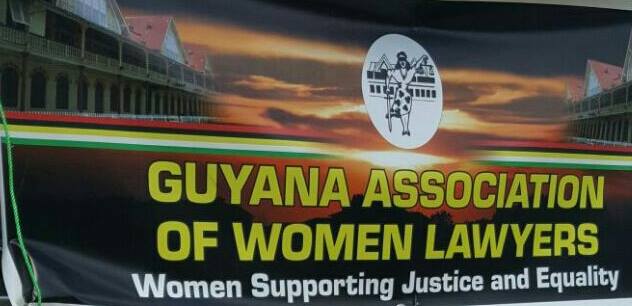The Guyana Association of Women Lawyers (GAWL) today strongly condemned attacks on the judiciary.
In a statement, the GAWL said its focus is premised on its motto “Women supporting justice and equality” and as such we feel compelled to address any attacks on the members of the Judiciary.
It said that it has noted comments in the media made by the Attorney General and Minister of Legal Affairs, Anil Nandlall SC, regarding a ruling in a matter made by Magistrate Leron Daly.
“GAWL takes this opportunity to remind members of the public that the members of the Judiciary should be allowed to independently perform their functions. Consequently, any disparaging remarks or attacks, whether personal or otherwise, may expose Judicial officers and their offices to ridicule. Further, the statements which have been published and communicated through various media platforms, widen the scope of the attention of the negative comments.
“The GAWL reiterates and unreservedly denounces these attacks and asks that persons cease from peddling, broadcasting, transmitting or in any way disseminating such information that may lower public confidence in Judicial officers and the Judiciary. While there is a right to free speech, these expressions must be within the parameters of the law and with regard to their contextual implications. The rule of law is the backbone of our society and as such respect should be accorded to those who in the exercise of their duty try to maintain the rule of law”, the association said.
The GAWL urged all persons to be prudent and respectful to the judiciary and all other professionals who are functioning in the course of duty.
Nandlall had criticised Magistrate Daly’s decision in a case where former Finance Minister Winston Jordan had been cleared of a charge of misconduct in public office. In a statement he issued the AG did not name the magistrate.
He charged that a precedent existed in a decision by the acting Chief Justice which would have secured the prosecution’s case.
“In recent times, I have been forced to undertake the unfortunate task to offer genuine critical commentary on the manner in which certain criminal cases are being adjudicated upon in the Magistracy. Another such occasion has regrettably presented itself”, he said.
He stated that the Magistrate predicated her ruling on a finding in law that as Minister of Finance, Jordan was not a Public Officer, an important ingredient in the offence.
Based upon inquiries made, he said that he was informed that the learned Magistrate received from the State written submissions supported by judicial authorities, including, a written ruling delivered by Chief Justice (ag) Roxane George SC in the matter of Winston Brassington and Dr. Ashni Singh v Munilal Persaud, Commissioner of Police, Ann McLennan, Chief Magistrate and Shalimar Ali-Hack, Director of Public Prosecutions 2018-HC-DEM-CIV-FDA-757.
In that case, Nandlall noted that Singh was charged with the identical offence regarding certain acts he performed while he was Minister of Finance and placed before the Georgetown Magistrate’s Court. The validity of the charge was challenged in the High Court on the identical ground, that is, as Minister of Finance, Singh was not a Public Officer for the purposes of the charge.
Nandlall noted that the matter was heard by Chief Justice George who, after hearing detailed submissions from both counsel for Singh and the Director of Public Prosecutions (DPP), ruled that Singh may be charged with the offence of Misconduct in Public Office notwithstanding that he was a Minister. This ruling was delivered on November 18, 2020 and was never appealed, Nandlall said, added that it remains the law on the issue.
“First-year law students are taught that the doctrine of Stare Decisis, by virtue of which the decision of the High Court on a particular principle of law, is binding precedent on a Magistrate, to the extent that the Magistrate has no jurisdictional freedom to depart from that High Court’s decision.
The two cases are almost identical in both issues of facts and law, and the decision of the learned Chief Justice in the Singh and Brassington case constitutes a binding precedent on the learned Magistrate. Clearly, the learned Magistrate erred in law by refusing to follow the decision of the learned Chief Justice. Such an elementary egregious error has excited great public concern within a few hours and inevitably will shake the public confidence in the administration of justice. For to the public, it appears that they are different standards being applied to different persons by the administration of justice”, Nandlall argued.






